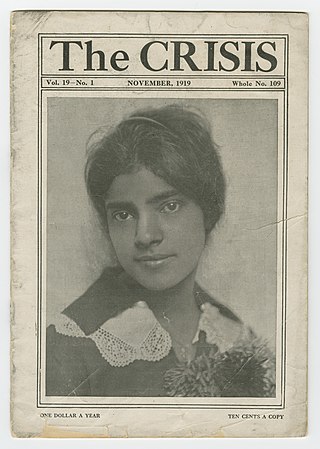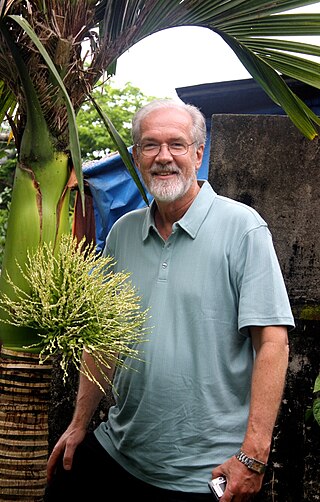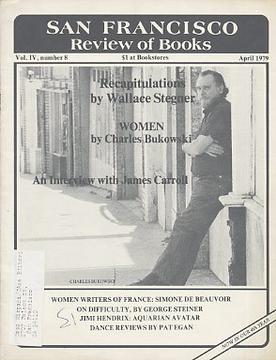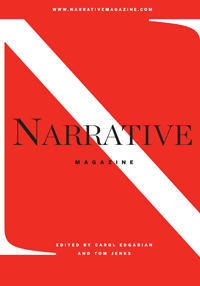The New York Review of Books is a semi-monthly magazine with articles on literature, culture, economics, science and current affairs. Published in New York City, it is inspired by the idea that the discussion of important books is an indispensable literary activity. Esquire called it "the premier literary-intellectual magazine in the English language." In 1970, writer Tom Wolfe described it as "the chief theoretical organ of Radical Chic".
The Language poets are an avant-garde group or tendency in United States poetry that emerged in the late 1960s and early 1970s. The poets included: Bernadette Mayer, Leslie Scalapino, Stephen Rodefer, Bruce Andrews, Charles Bernstein, Ron Silliman, Barrett Watten, Lyn Hejinian, Tom Mandel, Bob Perelman, Rae Armantrout, Alan Davies, Carla Harryman, Clark Coolidge, Hannah Weiner, Susan Howe, James Sherry, and Tina Darragh.

The Crisis is the official magazine of the National Association for the Advancement of Colored People (NAACP). It was founded in 1910 by W. E. B. Du Bois (editor), Oswald Garrison Villard, J. Max Barber, Charles Edward Russell, Kelly Miller, William Stanley Braithwaite, and Mary Dunlop Maclean. The Crisis has been in continuous print since 1910, and it is the oldest Black-oriented magazine in the world. Today, The Crisis is "a quarterly journal of civil rights, history, politics and culture and seeks to educate and challenge its readers about issues that continue to plague African Americans and other communities of color."

Michael Dana Gioia is an American poet, literary critic, literary translator, and essayist.

Ron Silliman is an American poet. He has written and edited over 30 books, and has had his poetry and criticism translated into 12 languages. He is often associated with language poetry. Between 1979 and 2004, Silliman wrote a single poem, The Alphabet. He has now begun writing a new poem, Universe, the first section of which appears to be called Revelator.
New Formalism is a late 20th- and early 21st-century movement in American poetry that has promoted a return to metrical, rhymed verse and narrative poetry on the grounds that all three are necessary if American poetry is to compete with novels and regain its former popularity among the American people.

Paul Hoover is an American poet and editor born in Harrisonburg, Virginia.

Epoch is a triannual American literary magazine founded in 1947 and published by Cornell University. It has published well-known authors and award-winning work including stories reprinted in The Best American Short Stories series and poems later included in The Best American Poetry series. It publishes fiction, poetry, essays, graphic art, and sometimes cartoons and screenplays, but no literary criticism or book reviews.

Deborah Ager is an American poet, essayist, and editor.
Jim Powell is an American poet, translator, and classicist from the San Francisco Bay Area.
Gulf Coast: A Journal of Literature and Fine Arts is a literary magazine from Houston, Texas. Founded in 1986 by Donald Barthelme and Phillip Lopate, Gulf Coast was envisioned as an intersection between the literary and visual arts communities. As a result, Gulf Coast has partnered with the University of Houston's Creative Writing Program, the Museum of Fine Arts, Houston, and the Menil Collection to showcase some of the most important literary and artistic talents in the United States. Faculty editors past and present include Mark Doty (1999–2005), Claudia Rankine, (2006) and Nick Flynn (2007–present). The magazine publishes poetry, fiction, and creative nonfiction.

San Francisco Review of Books (SFRB) was a book review periodical published from the mid-1970s to 1997 in the Bay Area, California, United States. Founding editor-publisher Ronald Nowicki launched his publication April 1975, a time when the San Francisco Chronicle depended on the wire services for its reviews. SFRB began as a magazine and later adopted a tabloid format.

Narrative is a non-profit digital publisher of fiction, poetry, non-fiction, and art founded in 2003 by Tom Jenks and Carol Edgarian. Narrative publishes weekly and provides educational resources to teachers and students; subscription and access to its content is free.

Vince Gotera is an American poet and writer, best known as Editor of the North American Review. In 1996, Nick Carbó called him a "leading Filipino-American poet of this generation"; later, in 2004, Carbó described him as "one of the leading Asian American poets ... willing to take a stance against American imperialism."
Black Clock was an American literary magazine that published twenty-one issues over twelve years. Edited by Steve Erickson, the magazine was "dedicated to fiction, poetry and creative essays that explore the frontier of constructive anarchy...Black Clock is audacious rather than safe, visceral rather than academic, intellectually engaging rather than antiseptically cerebral, and not above fun. Produced by writers for writers, Black Clock encourages risk and eschews editorial interference."

Andrés Montoya was a Chicano poet.
Carol Louise Edgarian is an American writer, editor, and publisher. A New York Times-bestselling author, her novels include Rise the Euphrates, Three Stages of Amazement, and Vera. She is co-founder and editor of the non-profit Narrative Magazine, a digital publisher of fiction, poetry, non-fiction, and art, and as founder of Narrative for Schools, whose programs provide free learning and teaching resources for students and educators.

Kevin Brown is an American biographer, essayist, translator, and author. Born in Kansas City, Missouri, Brown spent his early childhood in Western Europe and North Africa. By the late 1960s, Brown continued his education in the US and completed high school in 1977, after which he started to develop an interest in writing. Brown pursued his studies at Columbia University and City University of New York, as well as writing literature reviews and essays for Threepenny Review.
Letras Latinas is the literary initiative at the University of Notre Dame's Institute for Latino Studies (ILS), with an office on campus in South Bend, Indiana, as well as Washington, D.C. It strives to enhance the visibility, appreciation and study of Latino literature both on and off the campus of the University of Notre Dame, with an emphasis on programs that support newer voices, foster a sense of community among writers, and place Latino writers in community spaces.
Provincetown Arts is an annual magazine published in midsummer that focuses on artists, performers and writers who inhabit or visit Lower Cape Cod and the cultural life of the nation's oldest continuous artists' colony in Provincetown. Drawing upon a century-long tradition of art, theater and writing, Provincetown Arts publishes essays, fiction, interviews, journals, poetry, profiles, reporting, reviews and visual features. Provincetown Arts is published by Provincetown Arts Press, Inc., a 501(c)(3) non-profit organization.












